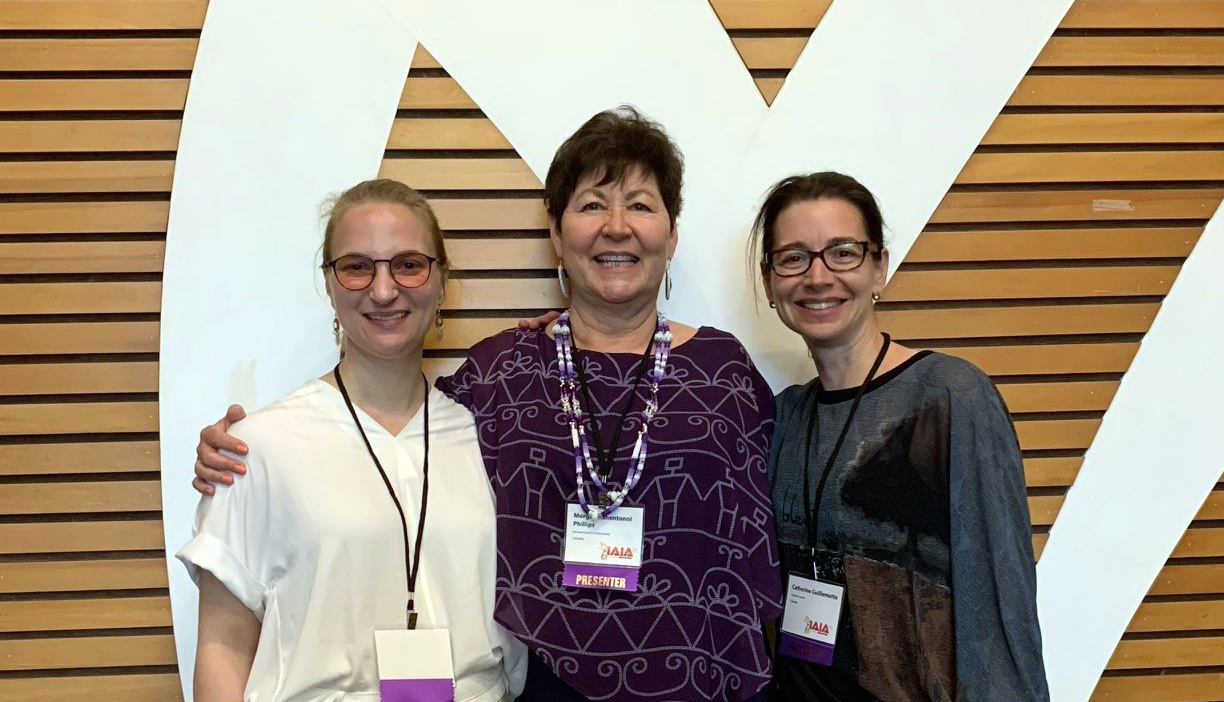The International Association for Impact Assessment 2023 (IAIA23) conference in Kuching, Sarawak, Malaysia, from May 8 to 11, 2023, aimed to promote resilience through impact assessment and leadership. The conference featured a wide range of presentations exploring fresh concepts and real-world applications of impact assessments.
When Paula Doucette, Manager of Environmental Programs in Pacific region at Transport Canada, received a call from James Herbert, Senior Advisor at Gitxaała Territorial Management Agency, inviting her to co-present on the Cumulative Effects of Marine Shipping (CEMS) program at IAIA23, she eagerly accepted. Catherine Guillemette, Senior Advisor in Environmental Assessment at Transport Canada, also enthusiastically agreed to join the event and extended the invitation to Roxane Lavoie, PhD, Professor at Laval University, and Morgan Kahentonni Phillips, PhD, Senior Research Advisor at the Mohawk Council of Kahnawake.
The Community Participation Funding Program funded James Herbert and Morgan Phillips' travel expenses. At IAIA23, the group presented their results on the CEMS regional assessments in Quebec and in the North Coast of B.C. The assessments focused on the effects of marine vessel activities on Indigenous communities and their connections to the land and water.
“Being able to showcase the work that the Gitxaała Territorial Management Agency and Transport Canada have been collaborating on at such a prestigious and international event such as the International Association of Impact Assessment conference was a great opportunity. The collaborative work between the Gitxaała Nation and Transport Canada has been a model for meaningful and productive collaboration, and being able to share our lessons and get feedback from professionals from all over the world was invaluable to our continued work together.”
- James Herbert, Senior Advisor at Gitxaała Territorial Management Agency
From left to right: Roxane Lavoie, Morgan Kahentonni Phillips, and Catherine Guillemette
Catherine mentioned, "There is a growing interest in collaboration between governments and Indigenous Peoples in Canada and countries like Australia and New Zealand. The interest lies in thinking about how Indigenous Peoples perceive the world with a holistic view, and how governments and Indigenous Peoples can work together to assess environmental impacts from our transportation activities. The CEMS initiative amalgamates these two elements. When I share the stage with my colleagues and partners, I'm captivated by their discussions regarding their experiences with the CEMS initiative. It makes me proud to present that the department has the capacity to do this in Canada.”
While interviewing both Catherine and Paula, one thing became evident. Their faces lit up when they talked about collaborating with Indigenous Peoples and advancing the CEMS initiative. Their work on the program is meaningful and important, and they genuinely love what they do.
“I am so grateful for the opportunity to represent my community of Kahnawà:ke at IAIA 2023 in Kuching, Malaysia. I’m also grateful for the new friendships made and being part of this project, as well as the funding received from Transport Canada’s Community Participation Funding Program and the Mohawk Council of Kahnawà:ke. We appreciate the efforts being made to collaborate with Indigenous communities in the spirit of collaboration and capacity building. Assessing cumulative sociocultural effects through a qualitative analysis lens allows for not only documenting stories of the land but also contributes to efforts of respecting our rights, our community practices, and ensuring our voices are heard when faced with intentions to exploit our resources.”
- Morgan Kahentonni Phillips, PhD
Catherine and Paula both expressed their appreciation for the opportunity to enter these communities and learn about their ways of doing things. They considered it a truly amazing experience, felt privileged to work on the CEMS initiative and were excited to share their results with the international community.
